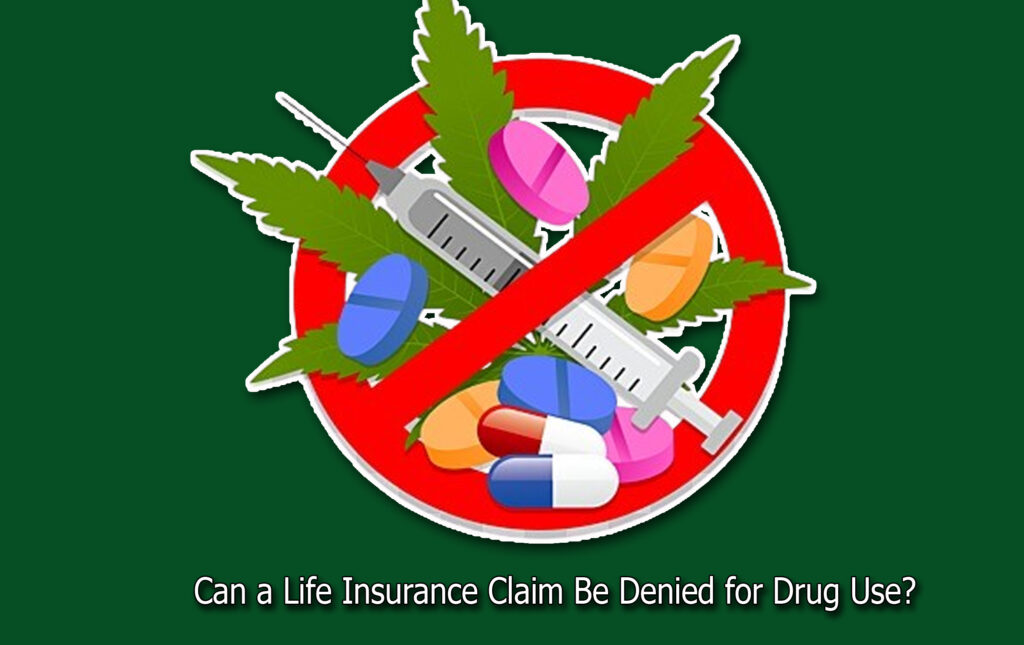Can a life insurance claim be denied for drug use? Life insurance provides financial security, but have you ever considered how certain behaviors might affect your claim?

Drug use is one such factor that could lead to complications. Insurance companies assess various risks when approving policies and processing claims.
Drug use, whether recreational or prescription-related, can raise red flags and potentially lead to a denied claim.
In this article, we’ll explore how drug use impacts life insurance claims, the circumstances under which a claim may be denied, and what you can do to ensure your loved ones receive the benefits they deserve.
Can a Life Insurance Claim Be Denied for Drug Use?
Yes, a life insurance claim can be denied for drug use. Insurers may reject claims if the insured did not disclose their drug use when applying, if the death was caused by an overdose, or if the policy includes exclusions for drug-related incidents.
It’s important to review your policy carefully and be honest during the application process to avoid potential claim denials.
What You Should Disclose to Your Insurer About Drug Use
Honesty is important when applying for life insurance, especially regarding drug use. Insurers rely on accurate information to assess risk and determine your policy terms.
Being upfront about your history, whether it involves recreational or prescription drugs, builds trust and strengthens your application.
You may need to answer specific questions, such as:
- What substances have you used?
- Have you been hospitalized due to drug-related issues?
- Have you undergone any treatments or rehabilitation?
- Have there been any relapses recently?
Providing clear and truthful answers helps ensure your policy remains valid and prevents complications for your beneficiaries.
When a Life Insurance Claim May Be Denied
Drug use doesn’t automatically disqualify a life insurance claim, but certain scenarios can lead to denials:
Death During the Contestability Period
The first two years of a life insurance policy are often a “contestability period.” During this time, insurers can review your application for inaccuracies. If drug use was not disclosed and it leads to death, the claim might be denied.
Death from Overdose
Accidental drug overdoses can result in a denied claim, especially if the use was not disclosed during the application process.
Some policies include specific exclusions for drug-related deaths, even if the overdose was unintentional.
Death Under the Influence
If an individual dies in an accident or due to risky behavior while under the influence of drugs, the insurer may deny the claim. This can occur if being impaired contributed to the circumstances of death.
How Drug Use Impacts Life Insurance Applications
Drug use often makes securing life insurance more challenging. Insurers view substance use as a higher risk, which may result in:
- Higher premiums
- Limited coverage options
- Denied applications for certain drug histories
Working with an experienced insurance agent can help you navigate the process and find a policy suited to your needs, even with a history of drug use.
What to Do If Your Claim Is Denied
If a claim is denied due to drug use and you believe the decision is incorrect, take the following steps:
- Review Your Policy: Understand the terms, exclusions, and clauses related to drug use.
- Contact the Insurer: Request a detailed explanation for the denial.
- Seek Legal Assistance: If the denial seems unfair, consult a life insurance lawyer to help appeal the decision and fight for the benefits owed to your beneficiaries.
Bottom Line
Drug use can influence both obtaining life insurance and ensuring claims are paid, but it doesn’t always result in disqualification.
Honesty during the application process is crucial, as undisclosed information can lead to claim denials later.
Understanding your policy’s specifics and disclosing any substance use upfront helps protect your loved ones. If a claim is denied, know your rights and seek legal support if necessary to ensure a fair outcome.



